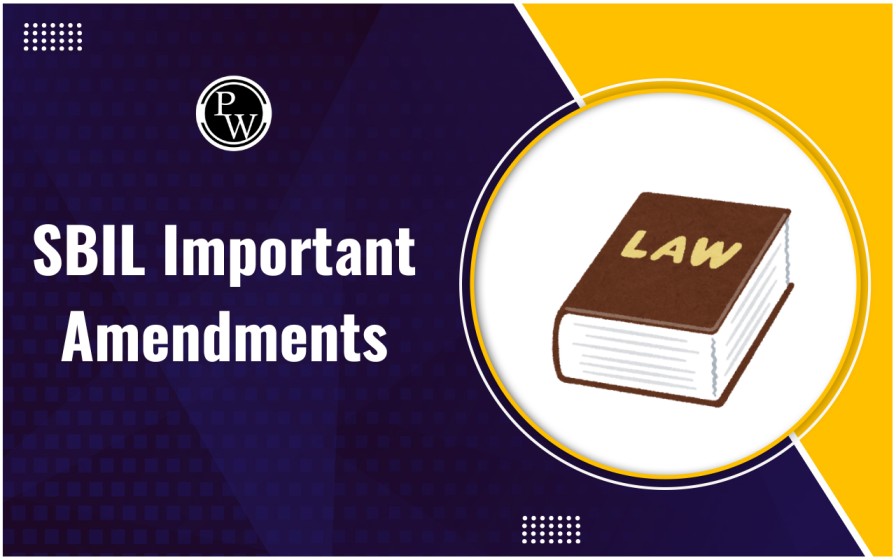
In every company, an auditor plays an important role in checking the accuracy of financial records and ensuring that all accounting statements are true and fair. Ideally, he/she is responsible for all the financial work in an organization.
The Companies Act, 2013 has clearly laid down the qualification, disqualification, and appointment procedure for company auditors in India.
Let’s understand these rules in simple terms.
Who Is an Auditor?
An auditor is a qualified professional who checks and verifies the financial books, statements, and reports of a company. Their main duty is to ensure that all accounts show a true and fair view of the company’s financial position.
Auditor Qualification under Companies Act, 2013
According to Section 141(1) of the Companies Act, 2013, only a Chartered Accountant (CA) holding a valid certificate of practice can be appointed as an auditor of a company.
|
Auditor Qualification under Companies Act, 2013 |
|
|
Eligibility Criteria |
Description |
|
Qualification |
Must be a Chartered Accountant (CA) in practice. |
|
Firm as Auditor |
A firm of chartered accountants can also be appointed, provided all partners practicing in India are qualified CAs. |
|
Only an Individual/Firm |
Only an individual or firm can act as auditor, not a company or any other body corporate. |
|
Joint Auditors |
Companies may appoint more than one auditor as joint auditors. |
This means only a professional with sound accounting knowledge and experience, recognized by the Institute of Chartered Accountants of India (ICAI), can perform an audit for companies registered under the Act.
Understanding Auditor Qualification in Simple Terms
When we say an auditor is “qualified,” it means:
-
The person must hold a CA degree and a Certificate of Practice (COP).
-
The auditor must have sufficient experience and knowledge in accounting and auditing. He/she should be very aware of what is happening in the marketplace.
-
The person or firm should be independent, meaning they are not influenced by the company’s management.
So, any person who meets the auditor qualification standards under the Companies Act is eligible to examine company accounts. And keep in mind, it is a huge responsibility for anyone, as the data is huge and needs to be managed properly.
Disqualification of Auditor under Section 141
Just like the law defines who can be an auditor, it also clearly defines who cannot be appointed as one.
Section 141(3) of the Companies Act, 2013 lists the disqualifications of an auditor.
|
Disqualification of Auditor (Section 141) |
|
|
Disqualified Person |
Reason for Disqualification |
|
A body corporate (other than LLP) |
Only individuals or firms (not companies) can be auditors. |
|
An officer or employee of the company |
They cannot audit their own company because it affects independence. |
|
A person who is a partner or employee of an officer or employee of the company |
To prevent conflict of interest. |
|
A person who or whose relative or partner holds securities or interest in the company |
Holding shares may bias their opinion. (Exception: up to ₹1 lakh is allowed.) |
|
A person indebted to the company for more than ₹5 lakh |
The person might not remain independent. |
|
A person who has given a guarantee or provided security for more than ₹1 lakh to the company or its subsidiaries |
Creates dependency or bias. |
|
A person with business relationships with the company |
Could affect impartiality. |
|
A person whose relative is a director or key managerial personnel (KMP) |
Could influence the audit result. |
|
A person in full-time employment elsewhere |
Cannot devote full attention to auditing. |
|
A person convicted of fraud within the last 10 years |
Trust issues, hence not eligible. |
|
A person who renders services prohibited under Section 144 |
Providing accounting or internal audit services can affect independence. |
If any of these conditions apply, the auditor cannot be appointed or must resign if already appointed.
Why These Disqualifications Exist
These disqualifications are meant to:
-
Maintain independence of auditors.
-
Avoid conflict of interest.
-
Ensure objectivity and fairness in auditing work.
-
Prevent fraud or manipulation in company accounts.
Eligibility Criteria for Auditor
To summarize, here’s a simple table showing both the eligibility and disqualification conditions for company auditors:
|
Eligibility Criteria for Auditor |
||
|
Aspect |
Eligibility Criteria |
Disqualification Conditions |
|
Qualification |
Must be a Chartered Accountant |
Not a CA or lacks Certificate of Practice |
|
Independence |
Should be independent from company management |
Has financial or personal interest in company |
|
Employment |
Should not be employed by the company |
Full-time employee or officer of the company |
|
Relationship |
No close relation with directors |
Relative is a director or key personnel |
|
Debt or Guarantee |
Not owing large amounts to the company |
Owes over ₹5 lakh or has given a large guarantee |
|
Integrity |
Clean professional record |
Convicted of fraud in last 10 years |
Auditor Appointment Procedure under Companies Act, 2013
The appointment of auditors is covered under Section 139 of the Companies Act, 2013.
Let’s break it down step by step.
1. First Auditor of a Company
-
For a non-government company:
The Board of Directors must appoint the first auditor within 30 days from the date of registration of the company.
If they fail, the members (shareholders) must appoint the auditor within the next 90 days at an Extraordinary General Meeting (EGM). -
For a government company:
The Comptroller and Auditor General of India (CAG) appoints the first auditor within 60 days from registration.
2. Appointment of Subsequent Auditor
After the first auditor’s term ends, the company must appoint an auditor for the next term at the first Annual General Meeting (AGM).
|
Appointment of Subsequent Auditor |
||
|
Type of Auditor |
Who Appoints |
Tenure |
|
First Auditor |
Board of Directors (within 30 days) |
Until first AGM |
|
Subsequent Auditor |
Shareholders at AGM |
5 years (till 6th AGM) |
|
Government Company Auditor |
CAG of India |
5 years |
3. Intimation to Registrar
Once appointed, the company must inform the Registrar of Companies (ROC) by filing Form ADT-1 within 15 days of the appointment.
Documents Required for Auditor Appointment
To appoint an auditor officially, the company needs the following:
-
Board Resolution for appointment.
-
Consent letter from the auditor under Section 139(1).
-
Certificate from the auditor confirming eligibility under Section 141.
-
Form ADT-1 filed with the ROC.
Procedure for Appointment of Auditor
Here’s a simple step-by-step view of how an auditor is appointed:
|
Procedure for Appointment of Auditor |
||
|
Step |
Action |
Responsible Party |
|
1 |
Check eligibility and disqualifications under Section 141 |
Company |
|
2 |
Obtain consent and certificate from auditor |
Auditor |
|
3 |
Pass a board resolution |
Board of Directors |
|
4 |
File Form ADT-1 with ROC within 15 days |
Company |
|
5 |
Include appointment details in the next AGM notice |
Company Secretary |
|
6 |
Members approve appointment in AGM |
Shareholders |
Auditor Removal and Rotation
1. Removal of Auditor Before Term Expiry
As per Section 140(1) of the Companies Act:
-
An auditor can be removed before the expiry of their term by passing a special resolution in the general meeting.
-
Before that, the company must take prior approval from the Central Government.
-
The auditor must be given a reasonable opportunity to explain their position.
Steps for removal:
-
Pass a board resolution proposing removal.
-
Apply to the Central Government (Form ADT-2).
-
After receiving approval, pass a special resolution in the general meeting.
-
File a copy of the resolution with the ROC.
2. Auditor Resignation
If the auditor wants to resign, they must:
-
Submit a written notice to the company and the Registrar (Form ADT-3).
-
Mention the reason for resignation clearly.
This ensures transparency and accountability in the process.
3. Rotation of Auditors (Section 139(2))
To maintain independence, the law requires rotation of auditors after a specific period.
|
Rotation of Auditors (Section 139(2)) |
||
|
Type of Company |
Individual Auditor Term |
Audit Firm Term |
|
Listed Company |
5 years |
10 years |
|
Unlisted Public Company (Paid-up capital ≥ ₹10 crore) |
5 years |
10 years |
|
Private Company (Paid-up capital ≥ ₹50 crore) |
5 years |
10 years |
|
Companies having borrowings ≥ ₹50 crore |
5 years |
10 years |
After completing the term, the same auditor or audit firm cannot be reappointed in the same company for 5 years (cooling period).
Importance of Auditor Rotation
Auditor rotation helps in:
-
Avoiding over-familiarity with company management.
-
Ensuring fresh and unbiased review of financials.
-
Enhancing public confidence in financial reporting.
Rights and Duties of the Auditor
Though not asked directly, understanding the rights and duties helps in seeing why qualifications and disqualifications are so strict.
Auditor’s Rights
-
To access all books of accounts and documents.
-
To seek information and explanations from company officers.
-
To attend and speak at general meetings.
-
To report frauds detected during the audit.
Auditor’s Duties
-
To examine and verify all financial records. It is the main work of an auditor.
-
To report true and fair financial status to members. The auditor is ideally the one who is responsible for giving correct reports to the companies.
-
To comply with auditing standards issued by ICAI.
-
To maintain confidentiality of company information.
Key Legal References under Companies Act, 2013
The Companies Act, 2013 clearly defines various sections related to the appointment, eligibility, and responsibilities of auditors. Each section outlines specific legal rules to ensure transparency, accountability, and independence in auditing practices. Check below for the key legal references under the Act that every company and auditor must follow.
|
Key Legal References under Companies Act, 2013 |
|
|
Section |
Description |
|
Section 139 |
Appointment and rotation of auditors |
|
Section 140 |
Removal, resignation, and special notice |
|
Section 141 |
Eligibility, qualifications, and disqualifications |
|
Section 144 |
Services that auditors cannot provide |
|
Section 142 |
Remuneration of auditors |
Services Auditors Cannot Provide (Section 144)
To maintain audit impartiality, the law prohibits auditors from providing certain non-audit services to the company or its subsidiaries.
|
Services Auditors Cannot Provide (Section 144) |
|
|
Prohibited Service |
Example |
|
Accounting or bookkeeping |
Maintaining accounts for the company |
|
Internal audit |
Performing internal checks |
|
Financial information system design |
Building financial software |
|
Actuarial services |
Valuation of insurance liabilities |
|
Investment advisory |
Suggesting investments |
|
Management services |
Making management decisions |
|
Outsourced financial services |
Running payroll or processing data |
Note - These restrictions ensure that the auditor’s judgment remains independent. It helps everyone to practice only good ethics and not follow wrong ones.
Company Auditor Qualification FAQs
Who can be appointed as a company auditor?
Can a person without a CA qualification become a company auditor?
Can a firm act as an auditor of a company?










